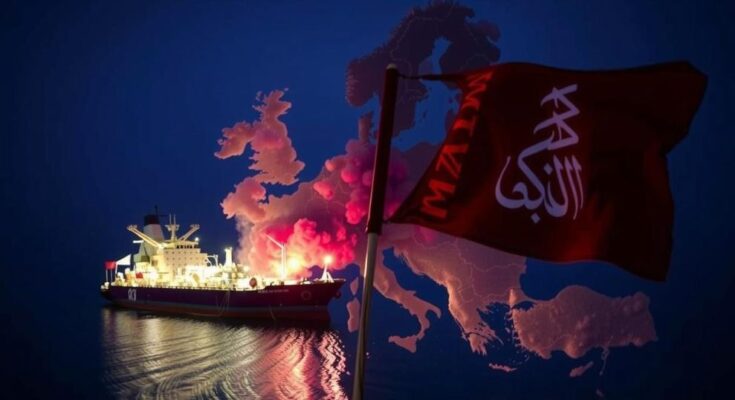Qatar has vowed to stop gas sales to the EU if fined under new due diligence laws aimed at preventing forced labor and environmental damage. Chief Executive Saad al-Kaabi emphasized that a 5% fine on revenue would affect the Qatari people, asserting that the EU needs to review this legislation comprehensively. Qatar, led by QatarEnergy, intends to expand its LNG capacity from 77 to 142 million tons by 2027 to strengthen its market position against U.S. competition.
Qatar has expressed its intent to cease gas sales to the European Union should it be penalized under the EU’s impending due diligence law. This proposed legislation aims to ensure that suppliers do not engage in forced labor or contribute to environmental harm. QatarEnergy’s Chief Executive, Saad al-Kaabi, stated that any fines, which could amount to 5% of global revenue, would not be acceptable as these losses would ultimately affect the Qatari populace. He expressed his belief that the EU must thoroughly evaluate the ramifications of this law before implementation.
As one of the leading liquefied natural gas (LNG) exporters globally, Qatar is proactive in enhancing its competitive position against other suppliers, especially the United States. The nation plans to significantly expand its liquefaction capacity within the next few years, targeting 142 million tons annually by 2027, up from the current 77 million tons. This strategic growth reflects Qatar’s ambition to solidify its influence in the energy market, particularly in Asia and Europe, amid intensifying competition.
The European Union’s proposed due diligence legislation is aimed at ensuring companies are held accountable for human rights and environmental impacts within their supply chains. The law’s enforcement could impose hefty fines on companies that fail to comply, which is causing concern among major suppliers, including Qatar. As a leading LNG exporter, Qatar’s response highlights the balance between economic interests and compliance with international regulations, especially as the country seeks to expand its role in the global energy market amidst increasing competition from the U.S.
In conclusion, Qatar’s firm stance on the EU’s due diligence law underscores its commitment to safeguarding its economic interests while navigating complex international regulations. The potential impact of these penalties could reshape Qatar’s approach to its energy exports, as the nation strategically positions itself to expand its market influence. As the global energy landscape evolves, Qatar’s response serves as a critical reminder of the interplay between corporate governance and national economic policies.
Original Source: economictimes.indiatimes.com




